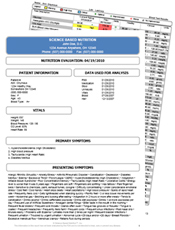In a recently published large international study the findings show that taking a low-dose aspirin as a preventative for heart attack or stroke is no longer recommended for adults age 70 or over, according to guidelines released in March 2019.
The new recommendations that were issued by the American College of Cardiology and the American Heart Association, are a reversal of previous guidance that endorsed taking a baby aspirin daily to prevent cardiovascular problems in adults over age 50. The two groups agreed that in older adults with low risk and no prior history of MI (heart attack) or stroke, the risk of gastrointestinal bleeding outweighed any heart benefit.
The changes come on the heels of the international study’s findings that even at low doses, long-term use of aspirin may be harmful, without providing any benefit, for older people who have not already had a heart attack or stroke. 
Dr. Roger Blumenthal, co-chair of the 2019 ACC/AHA Guideline on the Primary Prevention of Cardiovascular Disease states: “Clinicians should be very selective in prescribing aspirin for people without known cardiovascular disease. Aspirin should be limited to people at the highest risk of cardiovascular disease and a very low risk of bleeding.”1
The committee of experts reminded individuals that a healthy lifestyle is the most important way to prevent the onset of atherosclerotic cardiovascular disease, heart failure, and atrial fibrillation.
Nearly 80 percent of all cardiovascular disease (still the #1 killer of people worldwide) can be prevented with lifestyle modifications, according to the Heart Association. Doctors recommend regular physical activity and following meals plans that emphasize fruits, vegetables and proper protein intake.
In our clinic, we have access to cutting-edge laboratory testing to help assess vitamin and mineral deficiencies as well as identify heart health problems on a specific blood test called the Cleveland Heart Panel. By utilizing this laboratory technique and establishing a baseline before a problem begins it becomes much easier to track patients over decades of time and solve problems while they are small. Looking at levels of Omega 3 and Omega 6 balance, particular dietary recommendations as well as supplement suggestions can be used to reach optimal health goals.2 Specific levels for inflammation and heart muscle damage as well as atherosclerotic (hardening/narrowing of the arteries) changes are measured and then a unique and individualized plan is used to improve the values and the patient’s overall health. Typically, after a few months of treatment have been done then another blood test is conducted to measure improvements and progress.
If you haven’t had a heart attack yet then you are in perfect time to establish your baseline as soon as possible. If you have already had a heart attack then we need to get started right away! The heart muscle can remodel and regain its healthy shape but the sooner one starts the better.
References:
- https://www.nbcnews.com/health/heart-health/daily-aspirin-no-longer-recommended-prevent-heart-attacks-healthy-older-n984406
- https://www.peacehealth.org/healthy-you/8-heart-health-supplements-take-%E2%80%93-and-one-avoid
- Take2Health Care newsletter: CoQ10: Should You Take It TODAY? (October 2016)

